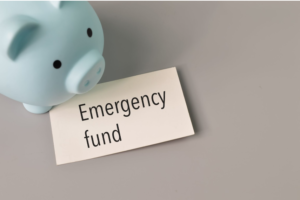
Money Management When You Have a Variable Income
Anyone who wishes to manage their finances, know their spending patterns, make sure they have enough money saved up for the future, pay off their debts, so they can enjoy retirement. When you have a consistent weekly, monthly, or annual income, money management is rather simple because all you have to do is subtract your expenses from your income to determine how much money you have left over for other purposes.
A variable income makes money management difficult. Even though it’s challenging to estimate your weekly or monthly income with precision, you still need to budget each month in order to cover your expenses. A little financial preparation might help you understand how to budget your money, even if it varies often.
What is a Variable Income?
For certain people, you can always predict your monthly income. This would be called a fixed income. With fixed incomes such salaries can be paid monthly, semi-monthly, biweekly or even weekly.
A variable income is one that varies from week to week or month to month. You can experience a month of high income followed by a month of low income. This is most commonly linked to those who are self-employed, commission-free salespeople, or hourly employees whose hours vary weekly or monthly.
Even though there is a distinct difference, the terms “variable income” and “irregular income” are sometimes used interchangeably. Anything that comes unexpectedly or occasionally would be deemed irregular. Such as presents for birthdays, inheritance, tax returns, etc.
Money Management with a Variable Income
The key to managing money when your income is unpredictable is to “get ahead of it.” In essence, you’ll experience months where your income is higher than your living expenses. During those months, you save money to cover the times when your expenses exceed your income.
When you anticipate the changes, you can use your short-term savings to get you through the next bright month. This will prevent you from taking out credit. Using credit to fill in the gaps can lead to credit card debt.
Study Your Income

The first step in managing money is gathering information. The foundation of every budget is your income and expenditures. If your income is inconsistent, you might need to put in more effort to obtain the information you need.
To find out which months received more deposits than others, check your bank account. Whatever patterns you can find between months, find them. Is the summer slow? Or do you have jobs over the summer? Do you make more money as the holidays approach? Does that start to decline in mid-December? Or do you anticipate having surplus money until the beginning of January? Once you’ve recorded your income for a few months, calculate your average monthly income by multiplying the sum by the number of months.
Determine Your Usual Expenses
Take a look at your monthly expenses. Your mortgage or rent, car loan, student debt, gas, and other necessities. Recurring expenses appear every month. What essential items must you have each month? Make a list of them and figure out how much it will cost to let them off the hook.
Estimate Your Monthly Discretionary Expenses
Determine the amount you typically spend each month on discretionary expenses like entertainment or dining out. Review bank account withdrawals and statements going back at least 12 months. Total the amount and divide it by the number of months. If you realize that you are spending too much on these expenses, try to reduce them.
Savings
Always save some money. Saving for the future should be prioritized because non-salaried workers experience greater financial uncertainty than those who benefit from the security of a traditional employment arrangement. You have the option of setting aside money from your gross income or treating savings as an expense that takes precedence over discretionary expenses. If you make contributions to multiple savings accounts, give each one a priority rating. Always save any extra money, bonuses, or unexpected payouts.
Create an Emergency Fund

Three months’ worth of expenses should be covered by your emergency fund, and an ideal emergency fund has two times that amount. You are especially susceptible to financial strain and uncertainty as a person with a periodic or variable income. Prioritize your emergency fund over other long-term or goal-oriented savings accounts if your emergency fund is deficient.
How to Get Rid of Debt With a Variable Income
The first thing to do if you have debts to pay off is to try and stabilize your cash flow. Find out the cause of your debt growth. Are you a frequent diner, or perhaps you haven’t updated your spending plan to account for inflation? Once the problem has been identified, devise a strategy to prevent debt from growing. Until you have a strategy in place, you should make minimum payments.
Stopping the cycle of borrowing, repaying, and borrowing again while ignoring the underlying issues is crucial to getting out of debt. To avoid getting trapped in a never-ending debt cycle, you might need to adjust your way of life and your financial priorities.
Speak with a debt expert about what kind of options you may have to reduce your debt. They can explain how a debt consolidation, consumer proposal or even bankruptcy can help you during this difficult time. Not only that, by speaking with one of our debt experts, your debts can be reduced by up to 80%, and all interest can stop immediately. To get started on your journey towards financial freedom, fill out the form on this page, and we will schedule a free consultation with you. Nothing feels better than to be debt-free.





